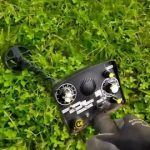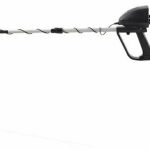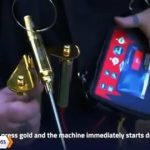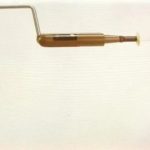Gold and Metal Detector: The Ultimate Guide
Are you fascinated by the idea of uncovering hidden treasures buried beneath the ground? If so, a gold and metal detector may be the perfect tool for you. In this comprehensive guide, we will explore the world of treasure hunting with a gold and metal detector, covering everything from how to choose the right detector for your needs to advanced techniques for finding valuable items. Whether you’re a beginner looking to get started or an experienced detectorist seeking new tips and tricks, this guide will help you on your journey to discovering buried treasure.
Uncover Treasure with a Gold and Metal Detector: The Ultimate Guide is a comprehensive resource for anyone interested in using metal detectors to find buried treasure. The guide covers everything from selecting the right equipment to techniques for successful treasure hunting. It also provides valuable tips for maximizing your chances of finding gold and other valuable metals. Whether you’re a novice or an experienced treasure hunter, this guide is an essential tool for anyone looking to uncover treasures with a metal detector.
The Ultimate Guide to Gold and Metal Detectors
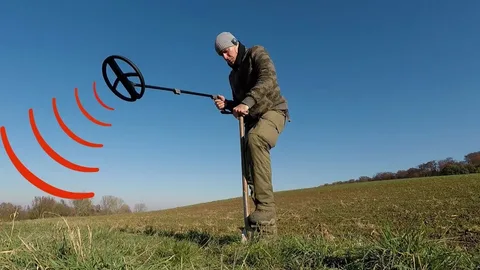
The Ultimate Guide to Gold and Metal Detectors is a comprehensive resource for both beginners and experienced users. It covers everything from the basics of how metal detectors work to advanced techniques for finding gold and other valuable metals.
The guide includes information on the different types of detectors available, such as VLF, PI, and multi-frequency models, as well as tips for choosing the right detector for your specific needs. It also provides advice on where to search for gold and other metals, how to properly use your detector, and how to interpret the signals it produces.
In addition, The Ultimate Guide to Gold and Metal Detectors offers practical advice on maintaining and caring for your equipment, as well as strategies for maximizing your chances of striking it rich. Whether you’re a hobbyist or a serious treasure hunter, this guide has everything you need to know to improve your metal detecting skills and increase your chances of finding valuable and meaningful treasures.
Choosing the Right Gold and Metal Detector for Your Needs
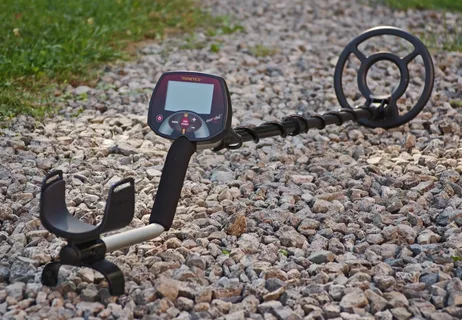
When choosing the right gold and metal detector for your needs, there are a few key considerations to keep in mind. First, think about the type of terrain you will be detecting on. Different detectors are designed for different types of ground, such as dry sand, wet sand, or highly mineralized soil.
Next, consider the type of targets you will be searching for. If you are specifically looking for gold, you will need a detector that is sensitive to small nuggets and has a high frequency for better sensitivity. If you are searching for relics or coins, a detector with good discrimination capabilities may be more important.
Also, think about your level of experience with metal detecting. Some detectors have advanced features that may be overwhelming for beginners, while others are more user-friendly.
Finally, consider your budget. There are detectors available at a wide range of price points, so it’s important to find one that offers the features you need at a price you can afford.
By considering these factors, you can choose the right gold and metal detector for your specific needs and increase your chances of finding valuable treasures.
Top 10 Gold and Metal Detectors on the Market
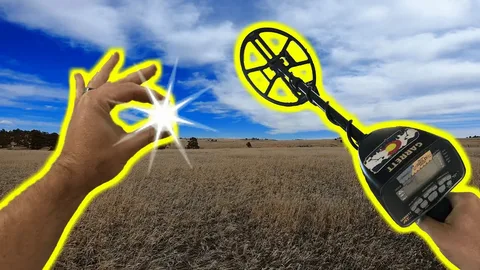
1. Minelab GPZ 7000: This model is known for its high sensitivity and depth capabilities, making it ideal for professional gold prospecting.
2. Garrett ATX: This metal detector is designed to withstand extreme conditions and is suitable for both land and underwater use, making it a versatile option for all types of metal detecting.
3. Fisher Gold Bug Pro: This lightweight and user-friendly detector is specifically designed for gold prospecting and has proven to be highly efficient in gold-rich areas.
4. Nokta Makro Gold Kruzer: With its advanced features such as multiple search modes and waterproof design, this detector is a popular choice among serious gold hunters.
5. White’s Goldmaster GMT: Known for its high sensitivity to smaller gold nuggets, this detector is favored by seasoned prospectors for its reliable performance.
6. XP ORX: This detector is highly praised for its ability to detect gold in highly mineralized soil and is also favored for its lightweight and ergonomic design.
7. Minelab Equinox 800: While not specifically designed for gold prospecting, this versatile detector has proven to be effective in finding gold nuggets in various soil types.
8. Tesoro Lobo SuperTRAQ: With its automatic ground tracking feature and high frequency operation, this detector is a popular choice for gold detecting enthusiasts.
9. Bounty Hunter Gold Digger: This entry-level detector is budget-friendly and suited for beginners looking to try their hand at gold and metal detecting.
10. Fisher Gold Bug 2: Known for its high sensitivity to small gold nuggets, this detector is highly regarded by professional prospectors for its efficient performance.
Pros and Cons of Using a Gold and Metal Detector
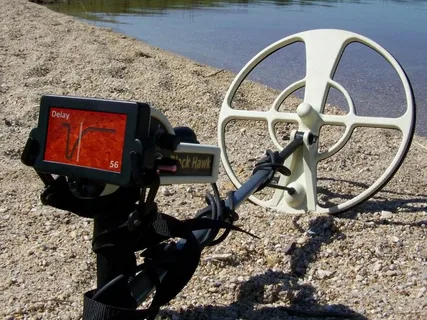
Pros of using a gold and metal detector include its ability to locate valuable items such as gold, coins, and other metal objects. It can also save time and effort in searching for buried or hidden items. Additionally, metal detectors are portable and relatively easy to use, making them accessible for beginners and experienced users alike.
On the other hand, some cons of using a gold and metal detector include the potential for false signals from mineralized soil or other environmental factors. Additionally, metal detectors may not always accurately identify the type or value of the detected item, leading to potentially disappointing finds. Finally, using a metal detector in public spaces may be subject to legal restrictions or require permission from property owners.
How to Maximize Your Gold and Metal Detector’s Performance
To maximize your gold and metal detector’s performance, it is recommended to familiarize yourself with the specific features and settings of your detector. Additionally, consider conducting regular maintenance and calibration to ensure accurate and reliable performance. Understanding the various modes and sensitivity settings, as well as practicing in different terrains and conditions, can also help you maximize the performance of your detector. Furthermore, investing in high-quality batteries, coil covers, and other accessories can contribute to improved performance and longevity of your detector. Lastly, staying updated with the latest technological advancements and techniques in metal detecting can also help you maximize your detector’s performance.
Uncovering Hidden Treasures: Gold and Metal Detecting Tips
Uncovering Hidden Treasures: Gold and Metal Detecting Tips is a comprehensive guide to help both beginners and experienced enthusiasts improve their metal detecting skills. The book offers tips on how to select the right equipment, techniques for successful prospecting, and strategies for identifying potential treasure locations. It also covers the legal and ethical considerations of metal detecting and provides valuable insights into the history of the hobby. With this book, readers can enhance their chances of finding valuable treasures and artifacts while enjoying the thrill of the hunt.
The Science Behind Gold and Metal Detection Technology
Gold and metal detection technology operates on the principle of electromagnetism and conductivity. When a metal object is brought into the electromagnetic field of a detector, it creates a disturbance in the field which is detected by the instrument.
The type of metal being detected determines how the disturbance is interpreted. For example, gold has unique conductivity properties that allow detectors to specifically target it amidst other metals.
Advanced technologies use multiple frequency signals and pulse induction to improve the accuracy and depth of detection. Signal processing algorithms further enhance the ability to differentiate between different types of metals.
Overall, gold and metal detection technology relies on the fundamental principles of physics and engineering to effectively locate and identify metallic objects.
Exploring the History of Gold and Metal Detectors
Exploring the history of gold and metal detectors involves understanding the development and evolution of the technology, as well as the various ways in which these devices have been used in different industries and applications. This includes the invention of the first metal detectors in the 19th century, their role in military and security applications during the World Wars, and their adaptation for use in treasure hunting and prospecting for gold. Additionally, the incorporation of advanced technologies such as pulse induction and VLF (very low frequency) detection has further enhanced the capabilities and accuracy of metal detectors in various fields. This history also encompasses the ongoing advancements and innovations in metal detector technology and their continued relevance in today’s industries and recreational pursuits.
Gold and Metal Detecting: A Hobby or a Profitable Venture?
See also: gold detector machine
Gold and metal detecting can be both a hobby and a profitable venture for enthusiasts. Many people enjoy the thrill of exploring new areas and the excitement of uncovering valuable treasures buried beneath the ground. Additionally, some individuals have been able to turn their passion for metal detecting into a profitable side business or even a full-time career by selling their finds or offering their services for locating lost items. However, it’s important to note that success in this field depends on various factors such as location, equipment, and expertise. While some may find considerable amounts of valuable items, others may only discover small trinkets or items of sentimental value. Ultimately, the potential for profit largely depends on an individual’s dedication, knowledge, and a bit of luck.
Common Myths About Gold and Metal Detectors Debunked
– One common myth about metal detectors is that they can detect gold easily because of its conductivity. In reality, most metal detectors are not specifically designed to detect gold, and detecting small gold nuggets or particles can be quite challenging.
– Another myth is that all metal detectors are the same and will work equally well for finding gold. The truth is that there are different types of metal detectors, some of which are specifically designed for gold prospecting, while others are better suited for general metal detecting.
– Some people believe that gold detectors are extremely expensive and out of reach for the average hobbyist. While high-end gold detectors can be quite pricey, there are also more affordable options available that are capable of detecting small gold nuggets.
– There is a misconception that metal detectors can penetrate deep into the ground and find buried treasure or gold deposits at great depths. In reality, the depth at which a metal detector can detect targets depends on a variety of factors, including the size and conductivity of the target, the type of soil, and the quality of the metal detector.






